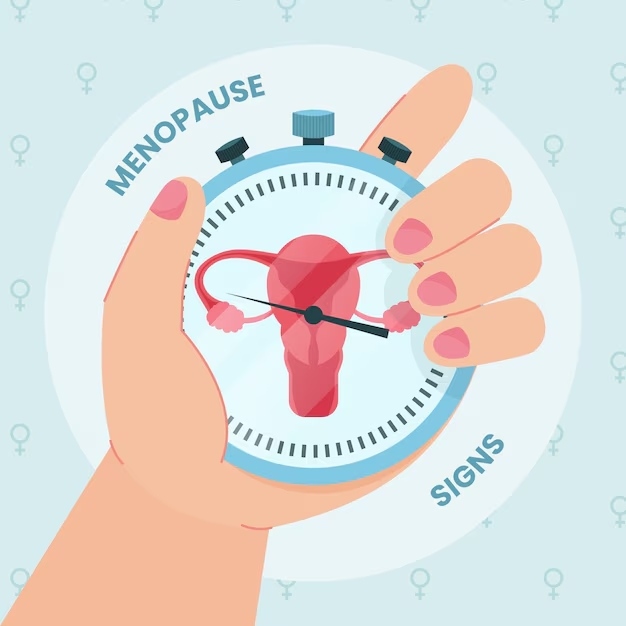A Comprehensive Journey to Conception: The Complete Guide to Getting Pregnant

Trying to conceive is an exciting yet sometimes challenging experience, and it’s one that requires knowledge, patience, and preparation. The path to pregnancy involves understanding your body, identifying the best times to try for a baby, making health-conscious decisions, and knowing when to seek medical help if needed. Whether you're just beginning the journey or have been trying for a while, this guide provides everything you need to know to improve your chances of conception and increase your likelihood of a successful pregnancy.
Understanding Fertility and Your Menstrual Cycle
The first step toward getting pregnant is understanding how fertility works. Ovulation is the key to conception, and it’s essential to understand the timing of your cycle and how to track ovulation. Your menstrual cycle consists of several phases, and ovulation is the point when your ovaries release an egg, which can be fertilized by sperm. This guide will help you understand the details of your cycle, from the follicular phase to ovulation, and how to pinpoint your most fertile days. Understanding your cycle is vital because the best time to conceive is around the ovulation period, and timing intercourse during this window dramatically increases your chances of getting pregnant.
To track ovulation, there are several methods, such as:
- Basal Body Temperature (BBT) Charting: This involves tracking your morning temperature to detect subtle changes that happen after ovulation.
- Ovulation Predictor Kits (OPKs): These test your urine for luteinizing hormone (LH), which surges right before ovulation.
- Cervical Mucus Monitoring: By observing changes in your cervical mucus, you can predict when ovulation is near, as it becomes clearer and more slippery.
Using one or more of these methods will give you a better understanding of your body’s patterns and the best times to try to conceive.
Lifestyle and Health Changes to Support Fertility
In addition to tracking ovulation, your lifestyle plays a significant role in your ability to conceive. Fertility experts agree that maintaining a healthy body is crucial for conception, and there are various ways to support your reproductive health.
1. Nutrition and Diet
What you eat can directly affect your fertility. Eating a well-balanced diet rich in vitamins, minerals, and antioxidants can improve both male and female fertility. Foods rich in folate, such as leafy greens, beans, and fortified cereals, are essential for women trying to conceive. Omega-3 fatty acids found in fatty fish like salmon can improve egg quality. Zinc, found in nuts and seeds, helps improve sperm quality. A fertility-friendly diet includes plenty of fruits, vegetables, whole grains, and lean proteins while limiting processed foods, sugar, and trans fats.
2. Healthy Weight Management
Being either overweight or underweight can impact fertility. Excess body fat can lead to hormonal imbalances, and being underweight can interfere with ovulation. Maintaining a healthy weight through a balanced diet and regular exercise is vital for reproductive health. For women with excess weight, losing even a small amount can increase the chances of conception. On the other hand, for those who are underweight, gaining weight in a healthy way can restore menstrual cycles and fertility.
3. Exercise
Moderate, regular physical activity is essential for supporting overall health and fertility. Exercise can help regulate hormones, reduce stress, and maintain a healthy weight. However, it’s important to avoid excessive or extreme exercise, which can have the opposite effect and disrupt ovulation and menstrual cycles.
4. Reducing Stress
Chronic stress can hinder your ability to conceive. High levels of stress interfere with the body’s ability to maintain a healthy reproductive cycle. Stress hormones, like cortisol, can disrupt hormonal balance and affect ovulation. Learning to manage stress through mindfulness, yoga, meditation, and relaxation techniques can improve both mental well-being and fertility.
5. Avoid Harmful Substances
Certain substances can negatively affect fertility, such as tobacco, alcohol, and drugs. Smoking reduces ovarian reserve and sperm quality, while excessive alcohol consumption can delay ovulation and impair sperm function. Avoiding or limiting these substances is crucial in improving the likelihood of conception.
The Role of Fertility in Male Health
While much of the focus on conception is often on the female partner, male fertility is just as important. Sperm quality is a critical factor in getting pregnant, and male fertility can be affected by age, diet, lifestyle, and health conditions.
1. Healthy Sperm Production
For men, a healthy diet, regular exercise, and maintaining a healthy weight can improve sperm count and quality. Certain vitamins, like vitamin C and E, are antioxidants that protect sperm from damage. Zinc and folic acid are also vital for sperm production and quality. Avoiding excessive alcohol, smoking, and exposure to environmental toxins is essential to protect sperm health.
2. Testicular Health
Testicular health is essential for producing healthy sperm. Men should avoid wearing tight underwear, hot baths, or excessive heat around the testicular area, as these can reduce sperm count. Additionally, managing stress levels and maintaining a healthy lifestyle are important factors for supporting healthy sperm.
When to Seek Medical Help for Fertility
If you’ve been actively trying to conceive for over a year without success (or six months if you’re over 35), it may be time to seek medical advice. A fertility specialist can conduct tests to evaluate both partners’ reproductive health and identify any potential issues. Common fertility tests include:
- Blood tests for hormone levels to assess ovulation and egg quality in women and sperm health in men.
- Ultrasound to check for any structural issues with the reproductive organs, such as blocked fallopian tubes or uterine abnormalities.
- Semen analysis to assess sperm count, motility, and morphology in men.
- Hysterosalpingography (HSG) to check the fallopian tubes for blockages.
- Laparoscopy to investigate potential issues like endometriosis or pelvic adhesions in women.
For couples with infertility, fertility treatments such as intrauterine insemination (IUI) or in vitro fertilization (IVF) may be options to explore.
Fertility Testing and Treatments
In cases where conception is taking longer than expected, fertility treatments can offer a solution. Treatment options may include:
1. Ovulation Induction
If ovulation is irregular or absent, medications like Clomid or Letrozole can stimulate ovulation.
2. Intrauterine Insemination (IUI)
IUI involves placing sperm directly into the uterus during the woman’s fertile window, improving the chances of fertilization.
3. In Vitro Fertilization (IVF)
IVF involves extracting eggs from the woman’s ovaries, fertilizing them outside the body, and implanting the embryos into the uterus. This treatment is often used in cases of severe infertility or blocked fallopian tubes.
4. Egg Freezing
For women who want to delay having children, egg freezing provides the option to preserve eggs for future use. This is especially beneficial for women who are concerned about age-related fertility decline.
Your Emotional Well-Being on the Journey to Pregnancy
While physical health is essential, emotional well-being plays a crucial role in your fertility journey. Trying to conceive can bring stress, frustration, and even disappointment, especially if it doesn’t happen right away. This emotional rollercoaster can take a toll on both partners, but it’s important to stay connected, support each other, and seek emotional support when needed.
Talking to a counselor, joining support groups, or simply sharing your feelings with friends and family can help ease the emotional burden. Mindfulness practices, such as meditation and yoga, can help you manage stress and maintain a positive mindset throughout your conception journey.
Conclusion: The Holistic Approach to Getting Pregnant
In conclusion, getting pregnant is a journey that requires a multi-faceted approach. It involves understanding your fertility, making informed lifestyle and dietary choices, managing stress, and knowing when to seek medical help. Whether you're just beginning or have been trying for some time, this comprehensive guide offers practical advice, expert insights, and support for every step of the way.
Remember, each person’s fertility journey is unique, and sometimes it takes time. With the right knowledge, patience, and support, you can improve your chances of getting pregnant and start the exciting chapter of parenthood.
Related Articles

Miscarriage Myths and Facts: First Trimester Risks

Baby development at 11 weeks

Managing Work Stress During the First Trimester

Preparing for Labor and Delivery

The Role of Vaginal Discharge in Reproductive Health

Baby development at 20 weeks

Building a Routine That Respects Your Body

Baby development at 16 weeks